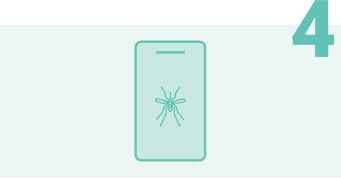Research components
Data collection
The mixed-method approach to data collection includes:
- Literature review
- Qualitative study
- Quantitative study
- Citizen reporting via mobile app

Literature review
A literature review of baseline studies helps to identify factors that promote the circulation of dengue and its vector.
These studies focus on a wide range of contributing factors, such as epidemiological and entomological components, environmental determinants of health, availability of water, sewerage, waste management, and environmental conditions. In this way they will allow for improved accuracy in identifying areas at greater risk of dengue transmission.

Qualitative study
A survey was designed to assess attitudes, knowledge, and practices (KAP) related to arboviral diseases. This survey comprised 39 questions, divided into two sections: one focusing on socioeconomic aspects and the other on knowledge, attitudes, and practices.

Quantitative study
To enhance entomological surveillance, a mobile phone application was created. Staff used this app to geo-reference the houses they visited, automating data entry and identifying areas with higher mosquito infestation. This app was integrated with an online system for data processing.

Citizen reporting via mobile app
A user-friendly mobile app was designed to allow citizens to report mosquito breeding sites. This app has engaged the community and ensured more timely reporting in breeding site monitoring.

